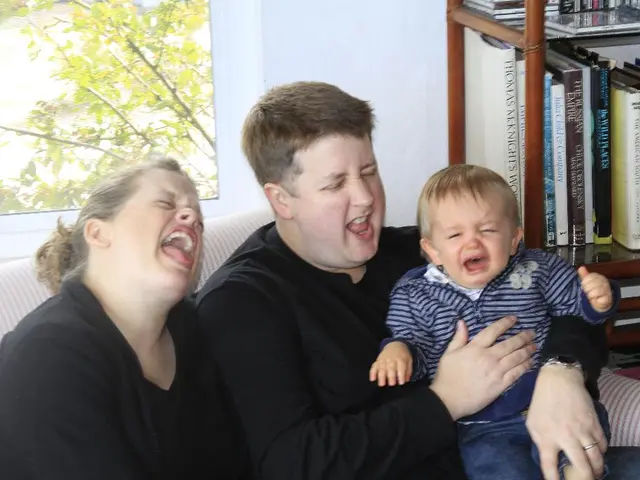A Five-Year-Old's Eyes on World War II End: Uwe Timm's War Memories
"The U.S. soldiers approached and rapped on the door"
Follow the fascinating story of author Uwe Timm, who as a kid of five years old, witnessed the cataclysmic end of World War II in the heart of Hamburg, Germany. From the burning streets of Osterstraße to the curry-infused sausages, Uwe’s life stories revolve around the dark era post-Nazi fall.
In a no-holds-barred interview with ntv.de, the 85-year-old Uwe shares his striking memories of the war, bombing raids, and the liberation days. Memories that etch vividly in his mind: babies, wrapped in wet towels, being pushed through burning tree-lined streets; soldiers pushing circus wagons as barricades against invaders; and American soldiers, the 'Black Panthers', pounding on doors.
Firebombs, Cellars, and a Fearful Atmosphere
Uwe's family apartment was annihilated in a bombing raid in 1943. His father, on leave, had an inkling of the attack from the radio news, clearing the people out of their homes early. That firebomb quickly consumed their house, leaving the family with only a table and a few porcelain figures that still stand in Uwe's home today.
Hypervigilant, they huddled in a cellar, a depressing atmosphere gripping the adults as they wrestled with their fears. The endless uncertainty clouded their conversations, and looting became common. The women were afraid to venture into the woods as refugees from the concentration camps and forced laborers roamed the land.
A Memorable End to War
Uwe's experiences of the war's end unfolded in Coburg, where the previous German soldiers were digging trenches by the Itz River. As the Americans arrived, they casually pushed aside the makeshift barricade and brought an instant stop to the shooting.
Those initial encounters of ebony-skinned men were terrifying due to misconceptions. Locals' apprehensions grew, and they struggled to understand the language and behavior of their liberators. However, the Black Panthers, much to the locals' surprise, treated them with respect and decency. They searched Uwe's home, discovered discarded Waffen-SS uniforms, and voiced their fury.
From Fear to Empowerment
The more assertive women took control in the wake of the liberation, rising to fill roles their male counterparts had left vacant. A former crane operator, having reclaimed her post, was met with resentment when the original crane operator returned, marking a shift of power dynamics.
Yet the transformation was neither immediate nor complete. The old guard attempted to maintain their control, but the liberation had an indelible impact on societal norms. The reconstruction of relationships, while incomplete, nudged Germany towards a new identity. Uwe Timm's more recent works continue to delve into this transitional period and its implications.
- The European Parliament, Council, and Commission played a significant role in the denazification and rebuilding of post-World War II Europe, shaping relationships and politics in the general news.
- Despite the fearful atmosphere of the time, Uwe Timm's experiences during the war and its aftermath gave him insight into the significant changes taking place in relationships and politics, which he later explored in his works.
- On the day that marked the end of World War II, Uwe Timm witnessed American soldiers, known as the Black Panthers, treat the local population with respect and decency, beginning to challenge the stereotypes and misconceptions of that time.
- The end of World War II in 1945 brought significant change to German society, with empowered women filling vacated roles and challenging traditional power dynamics, a transformation Uwe Timm observed as a child and later depicted in his works.









